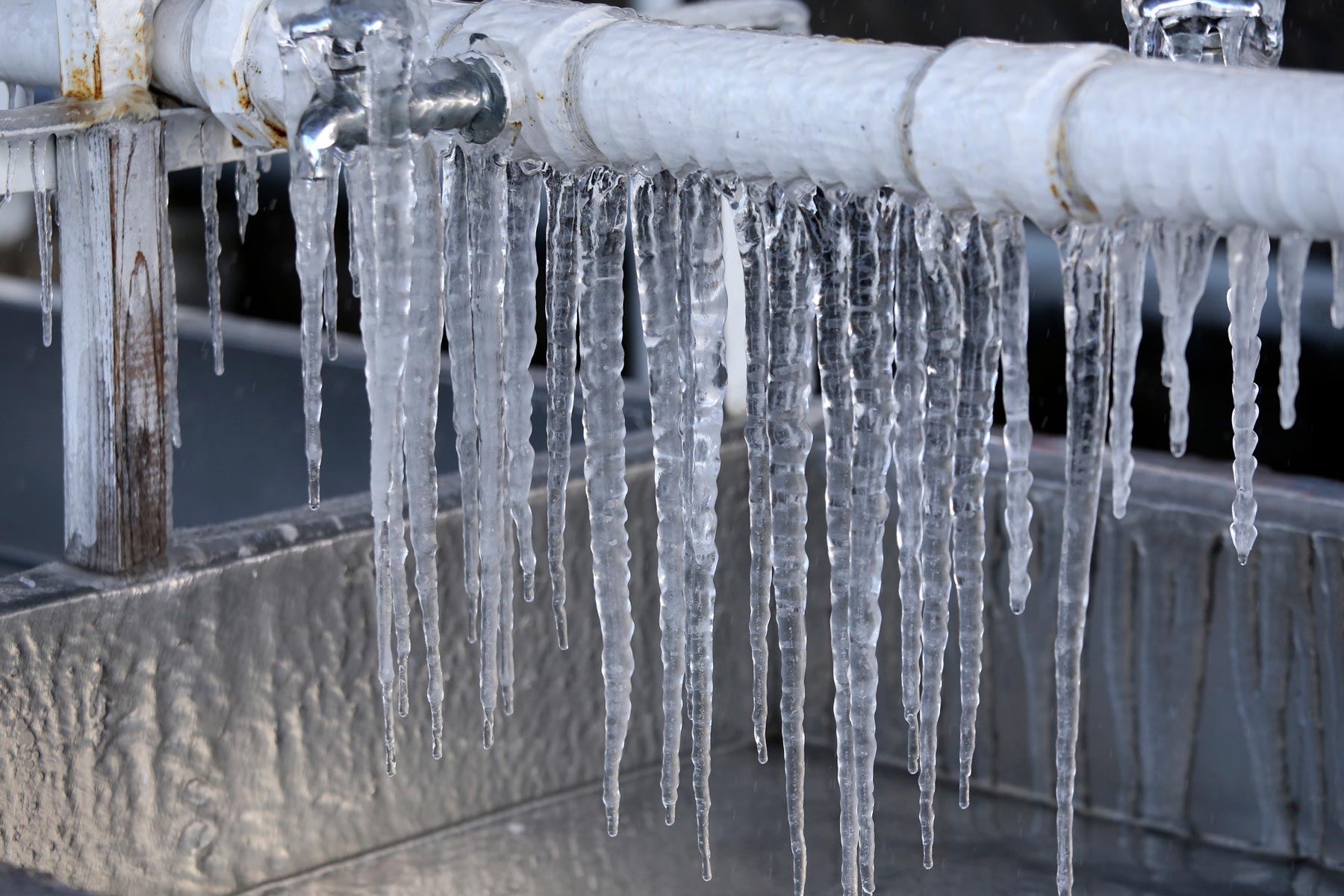How to Safeguard Plumbing System from Cold Weather: Essential Advice
How to Safeguard Plumbing System from Cold Weather: Essential Advice
Blog Article
Just about everyone has got their private conception with regards to Preventing and dealing with frozen pipes.

Cold weather can ruin your pipes, specifically by freezing pipes. Here's exactly how to avoid it from happening and what to do if it does.
Introduction
As temperatures drop, the risk of icy pipelines rises, potentially leading to expensive repair services and water damages. Understanding exactly how to prevent icy pipes is critical for property owners in chilly climates.
Prevention Tips
Insulating susceptible pipes
Wrap pipes in insulation sleeves or make use of warm tape to secure them from freezing temperature levels. Concentrate on pipelines in unheated or exterior areas of the home.
Heating techniques
Maintain interior rooms adequately warmed, specifically areas with pipes. Open cabinet doors to enable cozy air to flow around pipes under sinks.
How to recognize frozen pipes
Seek lowered water circulation from taps, unusual smells or noises from pipes, and visible frost on revealed pipelines.
Long-Term Solutions
Architectural adjustments
Take into consideration rerouting pipes far from exterior walls or unheated areas. Add added insulation to attics, basements, and crawl spaces.
Upgrading insulation
Purchase high-quality insulation for pipes, attics, and walls. Proper insulation helps maintain consistent temperatures and reduces the threat of icy pipelines.
Securing Outside Plumbing
Yard tubes and outside faucets
Disconnect and drain garden tubes prior to winter. Mount frost-proof spigots or cover outdoor taps with protected caps.
Understanding Icy Pipes
What creates pipes to ice up?
Pipes ice up when exposed to temperature levels below 32 ° F (0 ° C) for prolonged durations. As water inside the pipes ices up, it expands, putting pressure on the pipeline walls and potentially creating them to burst.
Dangers and problems
Icy pipes can bring about water system disturbances, residential property damages, and pricey repairs. Burst pipes can flood homes and trigger comprehensive architectural damage.
Indications of Frozen Piping
Identifying frozen pipes early can avoid them from breaking.
What to Do If Your Pipes Freeze
Immediate actions to take
If you think frozen pipes, keep faucets open to relieve stress as the ice thaws. Make use of a hairdryer or towels taken in warm water to thaw pipes slowly.
Verdict
Protecting against icy pipes requires aggressive measures and fast responses. By understanding the causes, signs, and safety nets, house owners can protect their pipes throughout cold weather.
Helpful Tips to Prevent Frozen Pipes this Winter
UNDERSTANDING THE BASICS: WHY PIPES FREEZE AND WHY IT’S A PROBLEM
Water freezing inside pipes is common during the winter months, but understanding why pipes freeze, and the potential problems it can cause is crucial in preventing such incidents. This section will delve into the basics of why pipes freeze and the associated problems that may arise.
THE SCIENCE BEHIND FROZEN PIPES
When water reaches freezing temperatures, it undergoes a physical transformation and solidifies into ice. This expansion of water as it freezes is the primary reason pipes can burst. As the water inside the pipe freezes, it expands, creating immense pressure on the walls. If the pressure becomes too great, the pipe can crack or rupture, leading to leaks and water damage.
FACTORS THAT CONTRIBUTE TO PIPE FREEZING
Low Temperatures: Extremely cold weather, especially below freezing, increases the risk of pipes freezing. Uninsulated or Poorly Insulated Pipes: Pipes located in unheated areas, such as basements, crawl spaces, or attics, are more prone to freezing. Insufficient insulation or lack of insulation altogether exacerbates the problem. Exterior Wall Exposure: Pipes running along exterior walls are susceptible to freezing as they encounter colder temperatures outside. Lack of Heating or Temperature Regulation: Inadequate heating or inconsistent temperature control in your home can contribute to frozen pipes. PROBLEMS CAUSED BY FROZEN PIPES
- Pipe Bursting: As mentioned earlier, the expansion of water as it freezes can cause pipes to burst, resulting in significant water damage.
- Water Damage: When pipes burst, it can lead to flooding and water damage to your property, including walls, ceilings, flooring, and personal belongings.
- Structural Damage: Prolonged exposure to water from burst pipes can compromise the structural integrity of your home, leading to costly repairs.
- Mold and Mildew Growth: Excess moisture from water damage can create a favorable environment for mold and mildew growth, posing health risks to occupants.
- Disrupted Water Supply: Frozen pipes can also result in a complete or partial loss of water supply until the issue is resolved.
WHY CERTAIN PIPES ARE MORE PRONE TO FREEZING
- Location: Pipes located in unheated or poorly insulated areas, such as basements, crawl spaces, attics, or exterior walls, are at higher risk of freezing.
- Exterior Pipes: Outdoor pipes, such as those used for irrigation or exposed plumbing, are particularly vulnerable to freezing as they are directly exposed to the elements.
- Supply Lines: Pipes that carry water from the main water supply into your home, including the main water line, are critical to protect as freezing in these lines can affect your entire plumbing system.
- Underground Pipes: Pipes buried underground, such as those connected to sprinkler systems or outdoor faucets, can be susceptible to freezing if not properly insulated.
https://busybusy.com/blog/helpful-tips-to-prevent-frozen-pipes-this-winter/
:strip_icc()/snow-outdoor-faucet-pipes-4af65d1e5e904fb1aa7bf74071fe5d89.jpg)
Do you appreciate more info about Helpful Tips to Prevent Frozen Pipes this Winter? Try leaving a remark down the page. We would be pleased to listen to your opinion about this write up. Hoping to see you back again soon. Make sure you set aside a second to distribute this write-up if you enjoyed it. Many thanks for being here. Kindly come visit our site back soon.
This Page Report this page